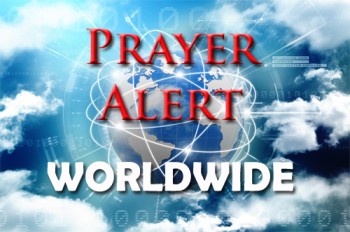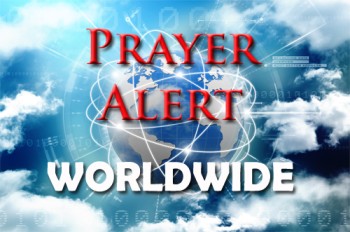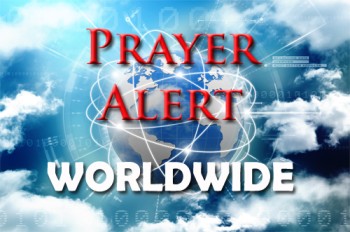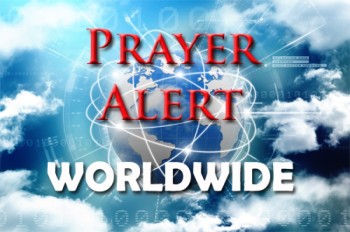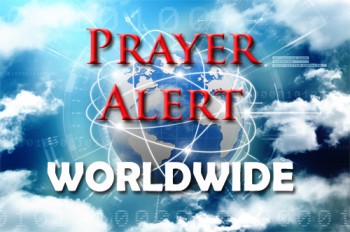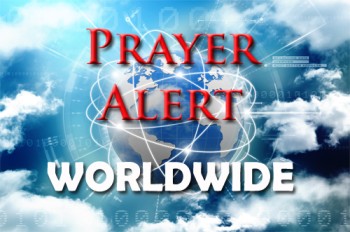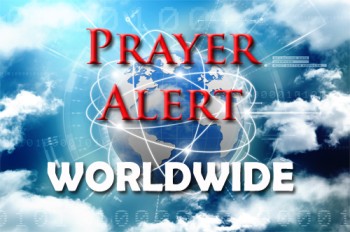Displaying items by tag: Middle East
Israel: looming crisis over conscription of ultra-Orthodox Jews
The long-standing exemption of ultra-Orthodox (Haredi) men from military service has potentially become a huge crisis for Benjamin Netanyahu. With the Gaza war placing immense strain on reservists, public opinion has shifted decisively toward ending the exemption, which was first granted in 1948. Although the high court ruled it illegal twenty years ago, political gridlock has kept it in place, so that only 1,200 of 24,000 drafted Haredi men reported for duty last year. Haredis have more than doubled their share of Israel's population over the past seven decades, and now account for 14%. What began as an exemption for several hundred religious students has now become a cohort of some 60,000 men left out of the draft. Street protests, clashes with police, and rapid-response networks reflect growing Haredi communal resistance. Supporters of conscription - religious and secular alike - argue that fairness and national survival demand shared burden. Yet ultra-Orthodox leaders insist that studying the Torah protects Israel spiritually and must remain untouched. Netanyahu’s fragile coalition depends on Haredi parties, making meaningful reform politically perilous. The Haredis are now locked in a debate over what it means to be Jewish and Israeli, and whether that means fighting for Israel or fighting for their way of life against the modern demands of war.
Gaza: Christians face an almost impossible choice
Gaza’s small Christian community, long rooted in the land where their faith began, is now confronting an existential crossroads. As a fragile ceasefire wavers and destruction remains widespread, believers like Elias al-Jalda face the stark question of whether their community can survive. With homes destroyed and more than two years spent sheltering in churches - some of which were themselves struck, causing tragic loss of life - daily existence has become a struggle for food, water and safety. Yet amid the devastation, they have discovered a profound solidarity, forming close-knit bonds in shared suffering. Many are choosing to leave while they can, echoing a wider regional trend in which ancient Christian populations across the Middle East have dramatically dwindled. Still, Elias and others hold on to hope, believing that Christian presence should remain in the birthplace of their faith.
Jesus appeared to Hamas member’s wife in dream
Juman al Qawasmi, once married to a Hamas member and raised in a culture of deep hostility toward Israel and Christianity, experienced a dramatic encounter with Jesus that transformed her life. During the 2014 Gaza conflict, after praying desperately for God to reveal Himself, she dreamed of Jesus standing before her, telling her, 'You are my daughter; don’t be afraid’. She described an overwhelming peace she had never known in Islam, where she felt she could never do enough. Juman had already begun questioning a belief system marked by violence, yet she had never heard the name Yeshua before this encounter. Born in Qatar to a father who was among Hamas’s founders, she once voted for Hamas but now openly rejects its agenda of hatred, corruption, and control. Discovering more about Christ through an Egyptian Christian website, she was deeply moved by His teaching to love one’s enemies and amazed to learn that many Muslims are meeting Jesus through dreams. With radiant joy, she now urges others: 'Cast your eyes on Jesus; He is the way!'
Syria: why al Sharaa’s visit to Washington is so important
In a stunning U-turn of diplomacy, Syrian president Ahmed al Sharaa - once known as Abu Mohammed al Jolani, former leader of the al-Qaeda affiliate Nusra Front - has arrived in Washington for historic talks with Donald Trump. He rose to power following the collapse of Bashar al-Assad’s regime and now leads Syria’s fragile transitional government. Once a fugitive with a $10 million US bounty, he is being welcomed as a potential partner in rebuilding his war-torn nation and countering extremist threats. Washington’s gamble is clear: support Sharaa to stabilise Syria, curb Iranian and Russian influence, and prevent renewed civil war. Yet challenges loom large: sectarian clashes persist, and doubts remain about his transformation from militant to unifier. The visit, the first trip by a Syrian head of state to the USA since the country gained independence in 1948, could redefine alliances and reshape Middle Eastern geopolitics for a generation.
Gaza: ceasefire fragile after Israeli airstrikes kill 100+
On 29 October, Hamas reported that Israeli airstrikes in Gaza had resulted in at least 104 Palestinian deaths, including 46 children. Israel's defence minister accused Hamas of an attack in Gaza which killed an Israeli soldier, and of breaching the terms on returning deceased hostages' bodies. Although Hamas denied involvement in the attack, asserting its commitment to the ceasefire, the IDF said it had targeted what it described as ‘terror targets and terrorists’, killing numerous individuals, including thirty armed group commanders. The strikes caused significant destruction, hitting homes, schools, and residential blocks: each side has accused the other of ceasefire violations. Despite the violence, Donald Trump downplayed the likelihood of renewed hostilities, supporting Israel's right to retaliate. The conflict shows the fragile nature of the ceasefire and the ongoing volatility in the region – which has also been highlighted by the call by Amnesty International to investigate whether a US airstrike on Yemen in April was a war crime. See
Syria’s post-conflict reconstruction to cost at least $216B: World Bank
The World Bank has estimated Syria’s post-war reconstruction will cost at least $216 billion, with possible totals ranging from $140 billion to $345 billion. Its ‘Syrian Conflict: Physical Damage and Reconstruction Assessment (2011–2024)’ report found $108 billion in direct physical destruction—around one-third of the country’s total capital stock. Infrastructure suffered nearly half the damage ($52 billion), followed by homes and public buildings, with Aleppo, Rif Dimashq, and Homs the hardest-hit regions. Syria’s economy has shrunk dramatically, with GDP down 53% since 2010, from $67.5 billion to just $21.4 billion. The report warns that reconstruction costs now amount to ten times the country’s current GDP, while sanctions, depleted reserves, and minimal capital investment leave the government unable to rebuild alone. Finance Minister Yisr Barnieh called for urgent global support to restore infrastructure and rebuild communities. Following Bashar al-Assad’s flight to Russia last year, Syria’s new government under President Ahmed Al-Sharaa has begun reforms aimed at stability, investment, and national recovery.
Gaza: conflicting emotions and remaining challenges as ceasefire takes hold
Israel and Hamas have taken a crucial first step toward ending the devastating two-year war in Gaza, releasing hostages and prisoners under a US-brokered ceasefire. The exchange brought immense relief and celebration across Israel and Gaza, even as both sides remain wary. Yet, the deeper challenges - Hamas’s refusal to disarm, Israel’s reluctance to accept a Palestinian state, and questions over Gaza’s future governance - still threaten the deal’s stability. For many, the sight of freed hostages reuniting with loved ones offered a rare moment of shared humanity amid years of grief. In Gaza, war-worn families welcomed returning prisoners but faced the grim reality of shattered homes and a crippled economy. As Donald Trump signed a declaration for peace, witnessed by twenty world leaders (see ), both Israelis and Palestinians have to grapple with the cost of vengeance and the fragile hope of renewal. The region stands at a crossroads between restoration and relapse into conflict.
Gaza: what we know so far about ceasefire agreement
After three days of indirect talks in Egypt, Donald Trump announced that Israel and Hamas have ‘signed off’ on the first phase of his twenty-point peace plan to end the Gaza war. The agreement, expected to be approved by Israel’s cabinet, includes an immediate ceasefire and the release of all remaining living hostages - around 20 people - within 72 hours. Israel will begin withdrawing troops to a line controlling roughly 53% of Gaza, while Hamas will return the bodies of 28 dead hostages. In exchange, Israel will release about 250 Palestinian prisoners serving life sentences and 1,700 Gaza detainees, but not including key figures like Marwan Barghouti. Hundreds of aid trucks will begin entering Gaza daily to address famine conditions. Later phases of the plan envision Gaza’s demilitarisation, temporary rule by Palestinian technocrats under an international ‘Board of Peace’ chaired by Trump, and eventual transfer to a reformed Palestinian Authority - points that remain deeply contentious between Israel and Hamas. Earlier in the week, on 7 October, 30,000 gathered in Tel Aviv in an emotional event marking the second anniversary of Hamas’s attacks: see
Gaza: Hamas likely to reject Trump’s peace plan
A senior Hamas leader has said the group is likely to reject Donald Trump’s peace plan for Gaza, arguing it favours Israel while ignoring Palestinian concerns. The plan requires Hamas to disarm, surrender its weapons, and release all hostages at once - conditions the group deems unacceptable. It also proposes an International Stabilisation Force, which Hamas views as a foreign occupation. While Benjamin Netanyahu publicly accepted the plan, he has already contradicted key provisions, insisting Israel must retain a military presence in Gaza and pledging to resist a Palestinian state. Palestinians in Gaza expressed desperate support for the proposal - not out of agreement with its terms, but in hopes of ending war, devastation, and famine. Critics warn that rejection could allow Israel to intensify its campaign with international backing. More than 66,000 deaths have been reported in Gaza since October 2023.
Iran: offering hope to young people
Generation of Hope, a SAT-7 PARS youth programme, has returned for its second season with a mission to uplift and support young people in Iran and beyond. The show, hosted by 16-year-old Ilya in London and by Hanieh and Nina in Türkiye, provides a platform for teenagers and young adults to explore vital issues such as identity, mental health, self-harm, and friendship. During the June war between Iran and Israel, the programme shifted to a more prayerful tone, reflecting the anxieties of viewers and offering a safe space for expression. Now it continues to blend thoughtful conversations with light-hearted games, aiming to bring both joy and encouragement. For Ilya, who left Iran due to persecution but found faith in the UK, hosting is a powerful way to share Christ’s hope. His own journey was inspired by his mother’s transformation through faith. He says, ‘People are hopeless; they don’t know what to do. We try to encourage them to hold onto faith, and to the hope that God will help Iran.’
